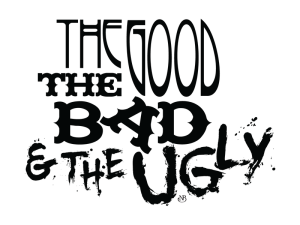 The 84th Texas legislative session was a challenging one for progressives. We had to fight hard just to try to maintain the status quo.
The 84th Texas legislative session was a challenging one for progressives. We had to fight hard just to try to maintain the status quo.
Local control – long a hallmark of Texas politics – became a bad word and state legislators attacked cities’ and counties’ rights to enact local regulations. Despite widespread outcry, house bill 40, which eliminates almost all meaningful local regulation of oil and gas operations, passed with bipartisan support. Other anti-local control bills were stopped. House bill 2595 would have essentially banned citizen referendums, but it was left in committee after passing the House.
The state’s few pro-renewable energy policies came under attack, even as wind and solar industries are creating thousands of jobs in Texas. Thankfully our efforts and those of our supporters and allies paid off and we were able to stop those bad bills, including senate bill 931, from becoming law.
We did make a few small steps forward on renewable energy policy. Senate bill 1626 will make it illegal for developers in Texas to ban people in developments with 51 or more homes from installing solar, even while the build out is ongoing. Read my previous blog for more on SB 1626. House bill 706 made it so that homeowner only need to apply for the on-site renewable energy property tax exemption once, instead of yearly. Senate bill 933 improves the reliability of the Texas electric grid and may allow wind and solar energy producers to sell their electricity to other states by improving the connection between the Texas grid and the rest of the country.
Senate bill 19, the main ethics bill, didn’t pass primarily because the Senate wouldn’t agree to disclosure of dark money (contributions to political non-profits). The bill also would have reduced conflicts of interests. Instead, house bill 1690 passed and will limit the authority of Public Integrity Unit and gives elected officials who commit certain illegal ethics violations the special legal privilege of being prosecuted in their home counties instead of where they committed the crime. Apparently Governor Abbott’s designation of ethics reform as an emergency issue wasn’t that serious. At least we and our allies were able to stop house bill 3396, which would have allowed political contributions up to $1,000 to be anonymous.
And of course there were some bills that were open attempts to protect polluters. A couple of them passed. Senate bill 709 limits citizens’ rights to challenge pollution permits. This includes permits for air pollution, waste disposal, and wastewater disposal. House bill 1794 places an arbitrary cap on civil penalties for polluters, regardless of the magnitude of the pollution caused, the harm done, or how difficult it will be to restore the area. Bills like this make it clear who the majority of Texas legislatures are representing – industry, not the people of Texas.
Some progress was made on water issues. House bill 1232 passed, providing for a study by the Texas Water Development Board to map and analyze the quality and quantity of water in aquifers around the state. Senate bill 1356 established a statewide tax free holiday for water-efficient products. House bill 1902 requires the Texas Commission on Environmental Quality to adopt rules and standards for the expanded use of household greywater such as from air conditioning condensate, washing machines, rainwater, and swimming pool backwash for residential outdoor and limited indoor reuse. Senate bill 551 created a state Water Conservation Advisory Council which will submit a report regarding progress on statewide water conservation efforts and recommendations to advance water conservation to the Governor and state officials every 2 years.
The worst water bill, house bill 3298, didn’t pass. It would have directed the Texas Water Development Board to conduct a study on establishing a massive systems of reservoirs, pipelines, canals, and other infrastructure to move water around the state. If ever implemented this would have meant heavy financial, environmental, and social costs to rural areas, state finances, and fish and wildlife habitat.
Texas State Parks did get a boost from house bill 158. The Texas Parks & Wildlife Department will now receive 100% of the taxes collected from the sale, storage, or use of sporting goods revenue. Take advantage of the nice weather and go visit a state park to celebrate this bit of good news.
There were also a lot of the good bills we worked on, but that didn’t pass. House bill 14 would have expanded the Texas Emissions Reduction Plan. House bill 3810 would have created an alert system for notifying neighborhoods about toxic releases or explosions. House bill 3760 would have regulated air pollution from scrap metal recyclers. Senate bill 1786 would have regulated toxic dust from giant piles of petroleum coke, a coal-like substance, which is the byproduct of oil refining. House bill 2769 would have extended the LoanSTAR Revolving Loan Program for energy efficiency and renewable energy installations on public buildings. Instead, this program will end this year. House bill 2254 would have banned minimum usage fees in the deregulated electrical market. Minimum usage fees drive up consumer costs and discourage energy conservation. House bill 2392 would have established a loan program for energy efficiency upgrades to existing residential buildings.
It wasn’t all bad, but enough of this 84th Texas legislative session was terrible enough that Texans should be taking a close look at how their state senators and representatives voted on some of the worst bills. Let you elected officials know if you aren’t pleased with their votes and be sure to vote yourself when the time comes. Only accountability from the public will provide for a better outcome next time.


